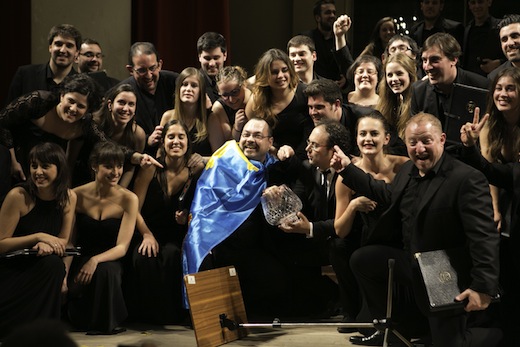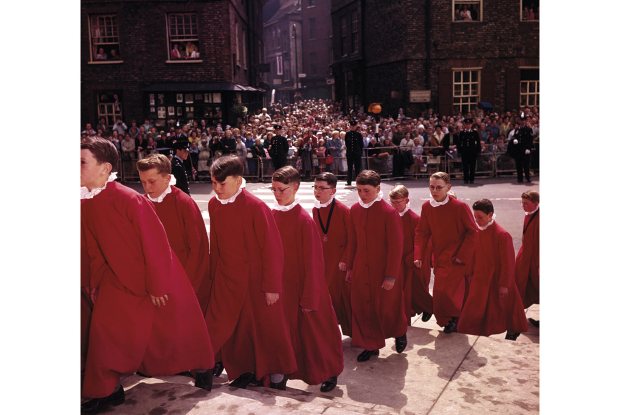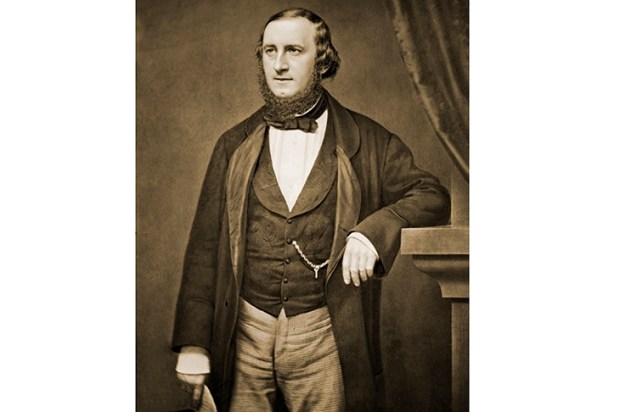To curate a festival these days is to put oneself in the firing line. There is every chance that all one will earn is the charge of stirring up apathy. It is a risk; and there will be no knowing how it has gone until it is much too late to withdraw gracefully. In the recently concluded first edition of the London International A Cappella Choral Competition, held at St John’s Smith Square, it could have gone either way. What will stick in my mind is how the wind got behind it round about day three, so that by the end a packed house could go mad at a Spanish victory.
My original idea had been to help give St John’s some new profile in this era of Milton Courts and Cadogan Halls and, quite separately, to hand some leading choirs and vocal ensembles the chance to sing in London, which is notorious for being the most difficult capital in the world in which to land a paid singing gig, let alone attract an audience. The vibrancy of British choral life means that we do not have much time for foreign ensemble singing. General interest in choral music anyway still lags so far behind interest in orchestral repertoires that for most people a good English choir, preferably a cathedral or collegiate one, is about as far as they will go with this repertoire. To pay a group from abroad to give a choral concert is a lonely way to throw money down the drain.

I wanted to do something about this, and so started a competition for unaccompanied choral singing. And the strange upshot was that, although four of the 11 choirs in the competition were home-grown, they struggled to make their way to the final round. This caused a lot of comment. There was no doubt that the UK groups had superlative techniques — all that chorister training was on instant display — but when it came to inhabiting the notes, the British fluency with sight-reading seemed counterproductive. The danger is obvious: we read off the score so quickly that our singers’ minds start to wander too early in the rehearsal process. By the third time through a new piece they will be asking why it is necessary to do it again. They have mastered the notes, the sound is beautiful, what more is necessary but to leave interpretation to the spur of the moment in the show itself?
Sometimes this works — it is very much the method I employ professionally — but if the spur is not glimpsed, all one is left with are pretty noises, reliable but empty. So it was that these young British singers, owing no particular allegiance to the group or the conductor who was employing them — they could and nearly did deputise for each other between the groups — found they had to dig deeper than usual when confronted with the fierce discipline and commitment of the choirs coming in from outside. Fortunately for our national pride, one group — the Erebus Ensemble, directed by Tom Williams — upped their game so significantly between the preliminary round and the final that they eventually came second. But they were lucky to be in the final at all.
The groups from overseas had to pay quite a bit to take part, which no doubt sharpened their resolve. It was obvious in all of them how devoted they were to their conductors, who in return literally led from the front, delivering carefully worked-out interpretations. There were some talented musicians among these people, not least Risto Joost, director of the Netherlands Chamber Choir but here marshalling Voces Musicales from Tallinn. In the end, it was choirs from Estonia, Italy and Spain that impressed the most; but it could as well have been the Byrd Ensemble from Seattle, or New Dublin Voices (who won the audience prize), or Dysonans from Poznan or the Swedish group from Lund. For hors d’oeuvres they all had to sing Gibbons’s Hosanna, Purcell’s Remember not and John Tavener’s The Lamb. As I said in my last column, there are many ways of performing a masterpiece.
The winners were El León de Oro from Asturias. This was the largest group in the competition, compellingly led by Marco Antonio García de Paz, who is clearly a genius. I wouldn’t have thought it possible for so many people, about 40 of them, to sing so perfectly together. As Emma Kirkby, one of the judges, said to them: ‘You can have discipline and sound boring. You can have passionate attack and sound wayward. But you have them both, which is the ideal.’ Quite so; though the discipline went out of the window when I announced the result. I was not the only person present for whom a dream had come true.
Got something to add? Join the discussion and comment below.
Get 10 issues for just $10
Subscribe to The Spectator Australia today for the next 10 magazine issues, plus full online access, for just $10.
You might disagree with half of it, but you’ll enjoy reading all of it. Try your first month for free, then just $2 a week for the remainder of your first year.













Comments
Don't miss out
Join the conversation with other Spectator Australia readers. Subscribe to leave a comment.
SUBSCRIBEAlready a subscriber? Log in